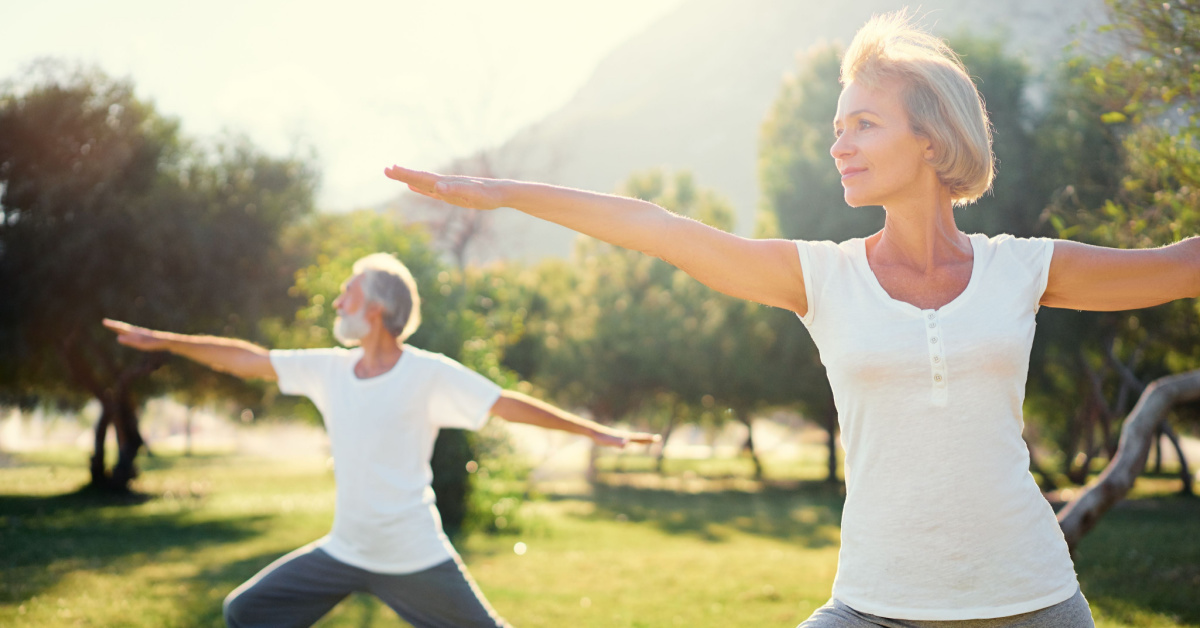Fall Prevention: 5 Easy Ways Seniors Can Reduce the Risk of Falling

The risk of falling and fall-related problems rise with age. Each year around 36 million falls are reported among people age 65 years and older making falls the leading cause of injury and death in this age group.
Here are 5 easy ways seniors can help reduce the risk and damage of their falls in their daily lives.
Exercise and Stay Active
As adults grow older they begin to lose strength in their muscles and tendons and increase their risk of developing illnesses such as arthritis and osteoporosis making many daily movements difficult.
Creating an exercise program made up of mild weight-bearing exercises such as walking, water aerobics, or resistance band workouts can help slow muscle degradation and bone loss and help prevent and protect seniors from falling.
Practicing workouts that improve balance in a safe way such as chair yoga or Tai Chi are also great ways to reduce the risk of falling.
Routine Eye and Hearing Exams
Loss of sight and hearing are common changes among older people. Difficulty adjusting to changes in lighting, failing to notice colors and obstacles while walking, or the inability to hear changes in the environment can all lead to an increase in falls.
Even with good vision, it is recommended that individuals age 60 years and older should have annual eye exams.
Hearing tests are recommended every 3 years for individuals age 50 years and older.
Limit Alcohol Consumption and Drink More Water
Reducing alcohol consumption is a helpful lifestyle change that can reduce the risk of many long-term health concerns including liver and brain damage, cancer, osteoporosis, and immediate concerns such as falling.
Even a small amount of alcohol can impair balance, slow reflexes, and lead to a greater risk of bone fracture. Replacing alcoholic beverages with water not only reduces the risk and damage of falls but also helps hydrate and strengthen joints and muscles to improve mobility and strength.
Get Enough Sleep
An appropriate amount of sleep each night can improve alertness, curb depression, manage weight, and keep seniors on their feet (literally).
Getting 7 to 9 hours of sleep each night is important for adults of all ages but it’s often more difficult for older people. Eliminating mid-day naps and practicing a bedtime routine that reduces screen time are great ways for to improve sleep quality and reduce the risk of falls caused by drowsiness.
When sitting for extended periods it’s important that seniors take time standing up and use aids to support their balance.
Wear Appropriate Footwear
Proper footwear is an easy way to prevent seniors from sliding and falling. Older people should consider wearing non-skid, rubber-soled, low-heeled shoes while in the house to help improve balance and feel fully supported.
Additional aids such as walkers, railings, grip pads, and grip socks can also greatly improve traction and help seniors feel in control while moving throughout the home.
A fall can be embarrassing for older people to talk about especially when it seems preventable. It’s common for seniors to keep falls a secret and deny themselves care for fear of losing their independence. If you’ve been involved in a fall it’s important to tell a doctor or healthcare provider and take necessary precautions to prevent further injury.
No matter how minor they may seem, falls can lead to long-term health effects if not addressed immediately.